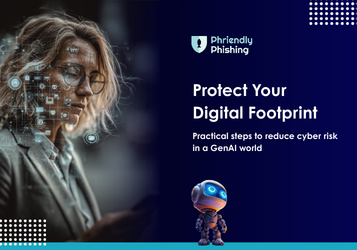The rising cost of living has prompted many people to start looking for ways to improve their financial position. Crypto, ETFs, Tax offsets, property and side hustles are all popular trains of thought when faced with feeling the pinch. Improving your overall wealth can be a smart way to set yourself and your family up for retirement and to make sure you don’t have to stress about paying the bills – but if the situation is dire, it’s very easy to get caught up in investment scams.
Investment “opportunities” are everywhere, and if you have social media, you’re likely to have seen ads for investment platforms, or even influencers spruiking for crypto or business investment. The downside to this digital investment boom is the emergence of sophisticated investment scams. From cyber attacks to clever social engineering tactics, malicious actors are seeking to deceive even the most prudent investors.

Recognising common investment scams:
High returns, low or zero risk: Beware of any scheme offering incredibly high returns with little to no risk. If it sounds too good to be true, it probably is.
Unsolicited offers: If you receive an unsolicited email or phone call about an investment opportunity, treat it with caution. Scammers often pose as genuine investment advisors or brokers.
Offshore investments: While not all offshore investments are fraudulent, be extra vigilant. Many scammers target Australians with schemes operating outside of the country to escape the Australian Securities and Investments Commission (ASIC) oversight.
Social media scams: Impersonating a charity, celebrity or even someone you know to convince you to invest or sign up to a scheme.
Going back to the basics, it’s important to keep in mind good cyber hygiene. Keeping your devices up-to-date with the latest software security patches and using a reliable antivirus at a minimum is a must. Also, don’t overlook the power of Multi-Factor Authentication (MFA); it’s an extra layer of security that can make all the difference in keeping your accounts safe if the scammer’s intent is to access your accounts.
If you use your devices for work or are using a BYOD that is enrolled in your organisation’s workspace and servers, it’s not just your own information and financial accounts at risk.
Ensuring that this cyber hygiene stretches to include work devices and networks is imperative – the ongoing economic impact can be far reaching, including layoffs and lack of consumer confidence.
Equally important is understanding and combating social engineering tactics. Scammers are adept at leveraging human psychology, sometimes using pressure tactics to rush you into making hasty decisions. They might weave tales of once-in-a-lifetime opportunities that you’ll miss if you don’t act immediately. Some take their time, cultivating a sense of trust over months, making you feel at ease before springing a ‘golden’ investment opportunity on you. Others might attempt to intimidate or frighten you, suggesting that your current investments are under threat. So, while technology is an essential defence, being aware of these manipulative strategies and cultivating a healthy scepticism is equally crucial. Always remember to double-check unsolicited offers, seek second opinions, and trust your instincts – if you still aren’t sure, consider some security awareness training like our bite-sized training courses to fortify your knowledge.

Essential precautionary measures
Research: Before investing, do thorough research. Check if the company is registered with ASIC and if the person advising you holds an Australian Financial Services (AFS) licence. If it’s a charity, check that they have permits or are registered with the appropriate state or federal authority, and if a friend is insisting on the ‘opportunity’ – adopt a zero trust policy (Of the opportunity, not the friend!) and do your due diligence.
Protect personal information: Never share PINs, passwords, or other sensitive data. Don’t reuse the same password or template.
Protect organisation information: Never conduct business or opportunities on work devices, don’t use your work email for communication for anything related to financial services.
Second opinions matter: Before making an investment, seek advice from trusted individuals or professionals outside of the deal. This can offer a fresh perspective and potentially identify red flags.
Be sceptical: It’s okay to question everything. From unsolicited emails to unexpected phone calls, always be on guard.
Report suspicion: If you come across a scheme you believe is a scam, or if you’ve fallen victim, report it to Scamwatch (AU) or the police and CERT (NZ). This can prevent others from becoming victims and helps in tracking down these malicious actors.
Always remember: diligence is not just about where you put your money, but also how you protect it. Check out our new course on how to spot investment scams in our course catalogue, and schedule a demo of our training platform today.

